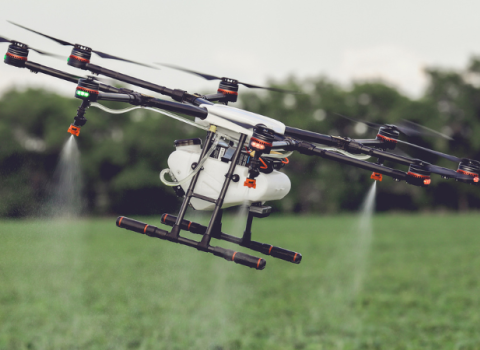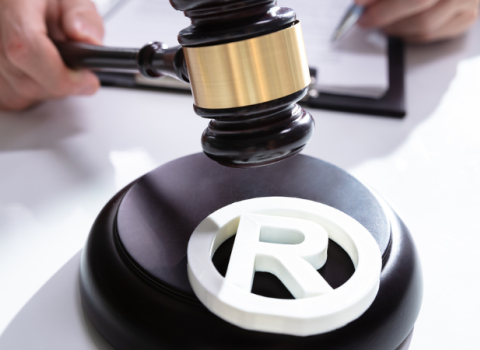
The cases go to the heart of patent law, raising issues including whether basic scientific principles can be patented, and if permanent injunctions can be issued against those found to have infringed on a patent. And the outcomes could ripple throughout the world to any university or company seeking or holding a US patent.
The latest patent statistics from the US Patent and Trademark Office illustrate the potential global ramifications of these cases: ten of the top 20 companies granted US patents in 2005 are based in Asia, according to preliminary figures. While three are based in Europe, including Infineon Technologies AG, a newcomer to the Top 20 in 2005.
The case of Laboratory Corp. versus Metabolite, both makers of diagnostic blood tests, questions to what degree basic scientific principles can be patented.,
Another, eBay versus MercExchange, questions to what degree the holder of a patent may interfere with the activities of a company or organisation found to have infringed it.,
The Laboratory Corp. versus Metabolite case questions whether a natural phenomenon, in this case the relationship between homocysteine (an amino acid) and vitamin B, which helps break down homocysteine, should be patented.
Metabolite has rights to a patent for measuring homocysteine levels in the blood. It also has rights to use the blood test to try to determine levels of vitamin B. Laboratory Corp. is arguing that as the "basic scientific relationship" between homocysteine and vitamin B is a natural phenomenon it shouldn't be patented.
Can patent holders be forced to grant rights?
The eBay versus MercExchange case revolves around the question of whether a company that has been found to be infringing a patent should automatically be prevented from further using the patent.
Although MercExchange holds patents on methods for online auctioning, it has not commercialised them. eBay is arguing that since the company did not commercialise the methods, eBay should not be prevented from using them.
This case has polarised the research community in universities and corporations alike. Historically, the courts have issued an injunction almost automatically if someone is found to have infringed a valid patent. But if the court agrees with eBay, it may be more difficult for university and other researchers who do not commercialise their patents to have full protection.
In 2003 a jury found in MercExchange’s favour, but did not grant an injunction preventing eBay from continuing to use the MercExchange methods. Subsequently, the Federal Circuit Court, one of the 13 US Courts of Appeals, reversed the lower court's decision and granted the injunction against eBay. The Federal Circuit Court is unique in that it has nationwide jurisdiction in areas including patents and trademarks.
EBay then brought the matter before the Supreme Court, which will determine standards for issuing an injunction.
Forces gather in support of both sides
Those in support of eBay’s plea for weaker injunctions, include Microsoft, Intel, Oracle, Micron, the Electronic Frontier Foundation, the Business Software Alliance and Nokia.
Nokia contends that injunctions could hamper technological innovation involving groups of companies, such as mobile phone makers and operators who work together to support open standards. "By ignoring the goal of public benefit, the decision…threatens to thwart the innovative and pro-competitive work of standard-setting organisations," Nokia's brief says.
Those filing briefs to support MercExchange and strong injunctions include the US government, Intellectual Ventures and Inventors, the BioIndustry Organization, PhRMA, General Electric, 3M, Proctor & Gamble, Qualcomm and the University of California and other research universities.
The universities' brief says in its summary that: "The [law] is grounded in the constitutional and statutory right of patentees to exclude others from reaping the fruits of the patented inventions. It has made it possible for the university sector to grow and flourish through the licensing of its inventions and through investing in start-up companies that develop the inventions with the aid of private investors."
The patent landscape shifts
A lot is at stake in both Supreme Court decisions, according to Scott Weingaertner, an intellectual property lawyer at White & Case in New York, who says the patent landscape, “May be on the verge of tectonic shifts. Not only are the courts reconsidering core patent law precepts, but the Patent Office itself recently surprised the Patent Bar with proposed rulemaking that would fundamentally change the way it processes and charges for patent applications.”
“Patentees and businesses alike have good reason to stay tuned," Weingaertner says on Mondaq, a legal, regulatory and financial commentary Web site..
In another case decided in early March, the Supreme Court sided with Illinois Tool, which has a patent for printheads, but not for the ink needed to use them. Illinois Tool requires its customers for printheads to buy its unpatented ink as well. Another ink maker, Independent Ink Inc., which makes ink for industrial printers, sued Illinois Tool, saying it was trying to dominate the ink market illegally.
The Supreme Court ruled Independent Ink had to prove that Illinois Ink has enough clout in the ink market to dominate it. This is in contradiction of a previous Supreme Court ruling that it was automatically illegal for those who own a patented product to force customers to buy a second product along with it, because it was seen as an antitrust violation.
But in the judgment Justice John Paul Stevens wrote for the court he said that, "Congress, the antitrust enforcement agencies, and most economists have all reached the conclusion that a patent does not necessarily confer market power upon the patentee. Today, we reach the same conclusion."





 A unique international forum for public research organisations and companies to connect their external engagement with strategic interests around their R&D system.
A unique international forum for public research organisations and companies to connect their external engagement with strategic interests around their R&D system.